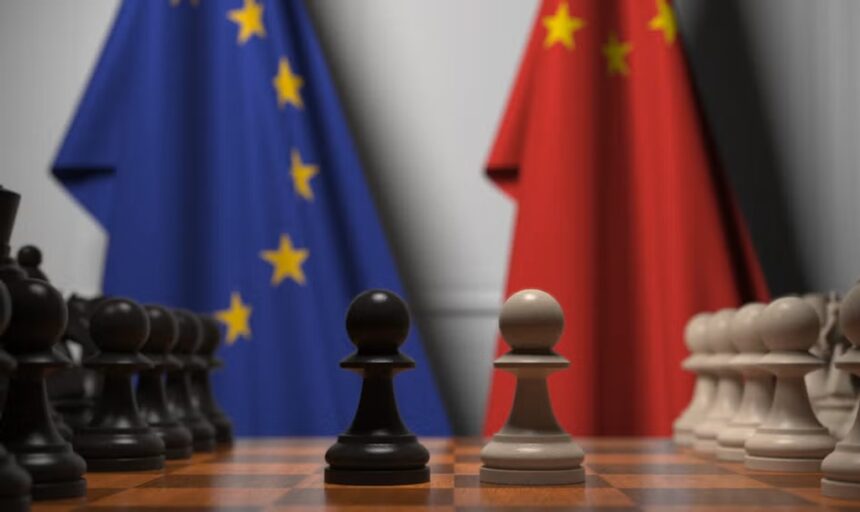BEIJING – China has announced fresh limits on public purchases of European Union medical devices worth more than 45 million yuan (about $6.3 million). This move, revealed by China’s Finance Ministry on July 6, 2025, escalates the trade dispute with the EU.
It’s a clear response to the EU’s recent decision to restrict Chinese companies from bidding on medical device contracts in Europe. These back-and-forth measures are putting more pressure on both economies, from electric cars to alcohol.
As leaders from both sides get ready for a key summit this month, the new rules are causing concern across the EU and raising questions about Brussels’ role in setting trade policy.
Trade between China and the EU has long involved both cooperation and conflict, but now it has entered a more confrontational stage. On June 20, 2025, the EU put limits on Chinese companies joining public tenders for medical equipment, citing unfair treatment of European firms in China.
The European Commission used the International Procurement Instrument, a rule set up in 2022, to push for mutual market access. EU officials claim that nearly 90 per cent of China’s government contracts for medical devices have been awarded to non-European suppliers due to these policies.
China’s answer arrived swiftly. The new rules block government purchases of EU-made medical devices worth more than 45 million yuan and also apply to other products with over 50 per cent EU-made parts. However, European companies making devices within China can still take part in public procurement.
By allowing these exceptions, Beijing is trying to protect its domestic market while increasing the pressure on imported goods. China’s Commerce Ministry defended the steps as necessary, blaming the EU for starting the spat and for shutting down dialogue.
These moves fit a recent pattern. For example, on July 4, China placed anti-dumping duties of up to 34.9 per cent on EU brandy, with French cognac most affected. This followed the EU’s introduction of tariffs up to 45 per cent on Chinese electric cars in late 2024, meant to offset Chinese government subsidies.
Automakers like BYD and SAIC now face duties between 17.4 and 37.6 per cent. China has also started looking into EU pork and dairy imports, signalling the dispute is spreading to more sectors.
How EU Countries Are Affected
The new restrictions will hit EU countries with strong medical device industries, such as Germany, France, and the Netherlands. In 2024, China made up 13.4 per cent of Europe’s external imports for medical devices, including nearly half the EU’s respirators and bandages.
Losing access to China’s government contracts threatens billions in sales for European firms. Companies such as Siemens Healthineers in Germany and bioMérieux in France may be among those most exposed. Ireland, with a large medtech sector, could also see a bigger impact because it relies heavily on exports.
European businesses now face tighter access to China at a time when the global market is shaky due to U.S. tariffs and tense geopolitics. The EU runs a large trade deficit with China each year, which adds to the pressure.
Supply chains for important equipment could break down, putting healthcare systems in some EU countries at risk, especially where there is little local production. Still, the European Commission has promised to allow exceptions when there are no alternative suppliers, to reduce short-term problems for healthcare.
The dispute is also making rifts inside the EU wider. Countries in Southern and Eastern Europe, which usually look for affordable imports, may push back against Brussels’ tough stance, worried about rising costs and unstable supply chains. At the same time,
Brussels’ Growing Role and Internal Challenges
Germany and other industrial leaders may see less competition from Chinese electric cars but lose out in other areas, like medical devices. These mixed interests make it hard for the EU to move as one.
The European Commission’s recent steps, from the International Procurement Instrument to electric vehicle tariffs, show that Brussels is taking a stronger role in trade decisions.
These bloc-wide measures bring more power to the centre, sometimes at the expense of national governments. For instance, Germany was hesitant about electric car tariffs, fearing a deeper trade row, but was outvoted by other EU members. Some countries, like Hungary and Italy, are critical of this push. They want closer economic ties with China and are worried about damage from retaliation.
With the EU-China summit coming up this month, Brussels faces the challenge of managing internal divisions while talking to China. EU officials want to reset relations, but China’s new steps, including limits on rare earth magnet exports, show it is willing to use its market strengths in talks.
Analysts such as Alicia Garcia-Herrero from the Bruegel think tank say the EU is in a lopsided relationship with China, which may use the talks to push for changes like dropping electric car tariffs or reopening investment talks.
China’s medical device restrictions
The growing trade fight creates problems for the EU at a tricky moment. President Donald Trump has proposed new U.S. tariffs of up to 50 per cent on EU goods, including farm exports.
This could hit European economies even harder and might lead Brussels to work more closely with China to make up for lost ground in the U.S. Still, working too closely with China could upset Washington and add to Europe’s security worries.
For Beijing, the medical device restrictions point to a push for more economic independence and a willingness to use its large market as a tool in trade disputes. By picking sectors like medical devices and brandy, China is putting clear pressure on Brussels to offer better market access.
Yet, China also relies on the EU for advanced goods, so a long dispute would be costly for both sides.
With the EU-China summit on the horizon, attention turns to whether both sides can agree on new rules and avoid more retaliation. For now, European companies and consumers are facing higher prices and more uncertainty, while Brussels tries to keep member states together under growing outside pressure.
The outcome of these talks could reshape trade between the EU and China, as well as global commerce, for years to come.














